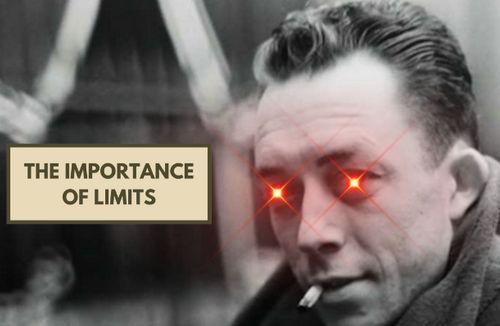Why Camus Left Communism Behind
Nov 08, 2022 · 2 mins read
0
Share

Introduction. Camus grew up in a working class neighborhood and joined both the communist party of France and of Algeria. His best friend during WW2 was Sartre, famous for being a Stalin superfan. Yet Camus wrote The Rebel in 1952, an anti-communism classic. What happened?👇
Save
Share
Camus left communism because he understood three profound truths:
a) Rebellion comes from resentment more often than not
b) Rebels make a good opposition party but never a good ruling party
c) Politics cannot provide us with heaven, but it can very much bring us hell
Save
Share
Camus is often called an anarchist but this is a serious misread. In The Rebel, he writes: "Absolute domination by the law does not represent liberty, but no more does absolute anarchy." On chaos: “Chaos is also a form of servitude. Without law there is no freedom."
Save
Share
As Camus struck these notes in the book, he was disowned by the Paris intelligentsia including Sartre. History showed Camus' judgement to be sounder. Camus: "Politics is not religion, or if it is, then it is nothing but the Inquisition."
Save
Share
Camus was a close reader of Nietzsche. Camus: “Nietzsche didn't form a project to kill God. He found Him dead in the soul of his contemporaries. He was the first to decide that this rebellion on the part of men couldn't lead to a renaissance unless it was controlled & directed.”
Save
Share
On socialism. Camus: “Socialism is only a degenerate form of Christianity. In fact, it preserves a belief in the finality of history which betrays life and nature, which substitutes ideal ends for real ends, and contributes to enervating both the will and the imagination.”
Save
Share
Freedom and obligations. Camus: “Nietzsche knew that freedom of the mind isn't a comfort. He knew that in wanting to consider oneself above the law, there is a great risk of finding oneself beneath the law. The mind found real emancipation in the acceptance of new obligations.”
Save
Share
Camus on how rebellion can lead to nihilism which always leads to slavery: "We now know, at the end of this long inquiry into rebellion and nihilism, that rebellion with no other limits but historical expediency signifies unlimited slavery." All rebels must recognize "limits."
Save
Share
My favorite line from The Rebel By Albert Camus: "Just as genuine classicism is only romanticism subdued, genius is a rebellion that has created its own limits."
Save
Share
Bottom line. Restrictions imposed by God no longer have emotional weight. But w/o obligations & limits there is no life, progress, or creativity. Rebellion to be noble must learn to limit itself. Liberty is only possible under hard-fought order, not in chaos.
Save
Share
0